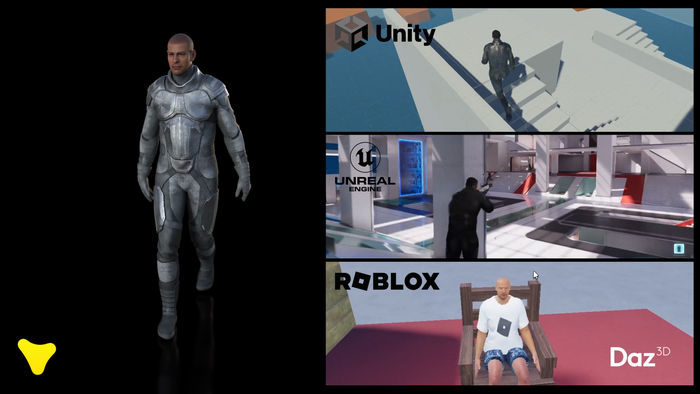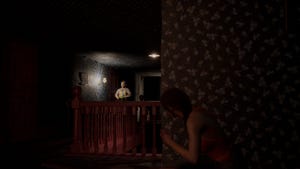
Featured Blog | This community-written post highlights the best of what the game industry has to offer. Read more like it on the Game Developer Blogs.
From PoxNora to Conquest
Kihon Games creative director and co-founder Dan Kopycienski discusses the design decisions made while developing their new cross-platform tactical strategy game, Conquest of Champions.

Conquest of Champions is a turn-based tactical strategy game currently in Beta (http://www.conquestofchampions.com) and releasing early next year for Mac, PC and iOS/Android tablets. We have always been very passionate about this genre, having launched one of the first games of its kind, PoxNora, back in 2006. Having been a fan of CCG’s (Magic the Gathering) and tabletop squad-based strategy games (WarMachine, Warhammer), I was surprised there were no quality video-games available at the time that were true representations of these 2 genres. In order to understand how Conquest came to be, I need to give you some background on PoxNora.
At the time, I was married with 2 small children and spending hours at the local game shop to play these games in-person was no longer practical. I knew there was a growing number of older gamers like myself that were looking for the same thing: A way to play competitive strategy games online, in 30-40 minute sessions. PoxNora was created in order to fill this void. There was a growing niche of gamers, isolated from their hobby due to family, job or physical location.
We started building PoxNora in my Tucson, AZ garage. Our company, Octopi, was in the business of making small promotional games for clients like Nokia and Paramount, but we never felt like we were part of the real game industry. In our minds, you were not really “in the industry” until you released your own title. Client work was a nice way to pay the bills, but included rigid creative constraints. PoxNora was our passion, and we spent nights and weekends creating an online multiplayer game that was a mashup of our two favorite genres, CCG and tabletop strategy games. None of us had any commercial game experience, and we knew finding a publisher was going to be near impossible. For that reason, we built the game to be free-to-play, with built-in micro transactions. At the time, there were not many games using the free-to-play revenue modal, so we really had to make things up as we went along. The game played through our website, so we eliminated the need for retail distribution.
Our launch was in fact an early Alpha build. We needed more time, but we needed revenue even more desperately. Many aspects of the game were incomplete or outright broken, but the core essence of the gameplay was there, and players loved it. The great thing about being an online-only game, is we were able to rapidly update the game, sometimes multiple times per week. After the first month we knew that the game was resonating with our target audience. Despite our shaky launch, PoxNora received great reviews and our forums were blowing up with passionate players debating deck strategies, design suggestions and creating fan fiction. We knew we had something special, but we had no idea that the game would still be going strong 7 years later.
When SOE approached us in the summer of 2009 with an acquisition offer, we were hesitant. We had just had our most successful 2 months revenue-wise, but we were also on notice from our credit card company that our threshold of charge-backs could potentially cause them to cancel our service. The issue comes down to the fact that we had an in-game trader. Unscrupulous players were using our game to charge stolen credit cards, buy content within our game, launder the content through our trader and sell accounts on e-bay. By the time we received the charge-backs, it was near-impossible to do much about it other than refund the cards. The fear of losing our credit-card processing, along with our excitement about the possibility of working for a real game company, prompted us to move forward with the deal.
Things unfortunately did not work out as we had hoped with SOE. Long story short, I left my position as Director of Development for the SOE Tucson studio after my contract was up and SOE closed our studio a few months later. PoxNora is still running today, but the game is hardly recognizable.
Since my non-compete expired with SOE, the goal has been to create a new game that takes the essence of what made PoxNora so great, while eliminating the issues that kept it from becoming a huge success. We strongly believe iteration is the key to achieving greatness and we have always regretted not being able to iterate on PoxNora. Over the last year we have been able to re-assemble the core team responsible for PoxNora and start development on Conquest.
The first thing we wanted to do was map out the things we did right with Pox, as well as the things that held the game back. First, here are some of the key things that Pox succeeded at.
Monetization: PoxNora was free-to-play with a blind-repeat revenue model. Players would buy packs of cards, but they were granted random content based on rarities. This led to multiple repeat purchases as players were chasing rare and exotic cards every time we had a content release. Our average revenue per paying player exceeded $190 per player, which is fantastic for a small game like Pox. We had some players spend over $10,000.00 over the lifetime of the game.
Competitive Multiplayer: One of the key aspects of PoxNora that helped it become profitable was the competitive aspect. The game was a head-to-head strategy game and it really sparked competition. Players were very engaged with the game, wether it was deck building, playing matches, chatting in the lobby or posting in the forums. Guilds emerged, tournaments were held and allegiances were formed with the 8 playable factions. Getting to the top of the leaderboard was not a random act of chance. You had to be a very skilled strategy gamer and you needed to be smart.
Community Participation / Virality: PoxNora had a very passionate player-base. Players created websites dedicated to their guilds and their favorite factions. Sites that tracked the value of our cards and even sites created for cartoons featuring our characters. This unexpected player participation allowed us to reach an audience we could not afford to buy with marketing. We also created a player design committee that featured our most knowledgable players and forum participants. They would give us suggestions on balance, community feedback and feature requests. They had a great understanding of the community and really helped us cater our content to maximize player enjoyment. We even went on to hire 3 players from our player design committee as full-time employees.
Unfortunately there were many things that kept us from reaching the next level with PoxNora.
Difficulty level for new players: PoxNora was not just hardcore, it had an extremely steep learning curve. The game rules were complicated and it took awhile for new players to get the hang of it. The fact that you were required to jump in and play against a human opponent almost immediately took its toll on retention. The fact that the gameplay was time-based also increased the stress level. We lost many new players after their first match. Later, we developed a single-player AI and campaigns to help ease players into the game, but it was still far from casual. Once we found a player that was able to get through the initial difficulty, we had them for a long time and they monetized well. Unfortunately it was very difficult to find those players.
Accessibility: Although PoxNora was a turn-based strategy game, it was played real-time and required players to be online simultaneously for 30-45 minutes for each match. While not a problem for most players, it was not the best implementation for a turn-based game.
Fraud: The issues with fraud and charge-backs almost destroyed the company. Having an in-game trader was a vehicle for players to easily cover their tracks and make it extremely difficult for our small staff to manage.
Cost: Although the game was free-to-play, the perception was that to become a competitive player you needed to spend a large amount of money. After the initial free starter decks, there were no other ways for players to receive content other than paying.
It was imperative that we take all of this in consideration as we designed Conquest from the ground up. We wanted to capture the same style of gameplay, but in a way that allowed us to reach a larger audience and achieve that next level of success.
We want Conquest to still be a hardcore strategy game, but by keeping the rules fairly simple it will be much easier for our new players to understand and compete right away. Instead of 8 factions, we have 3. Each card is limited to no more than 2 special abilities, as opposed to PoxNora that had some soldier cards that had over 5. PoxNora also allowed soldier cards to level up, and to customize their abilities. While interesting for the experienced player, it was prohibitively difficult for a new player to understand why some ranger cards had ability A and others had ability B. Conquest has a card fusion system that allows soldier cards to increase their attributes, but the abilities stay the same. When new players see a ranger card, they know exactly what to expect.
One of the features of Conquest that I am most proud of is our reward system. When a player creates an account with us, they get to choose one of the 3 factions and are granted a free Hero and starter deck of 30 cards. The free decks are actually quite competitive and a ton of fun to play. As they play through our tutorials, single player campaigns and ranked matches, they receive a reward for EVERY turn they take. Rewards can be in-game gold, experience, crafter components or additional cards. Essentially, free players can earn every card in the game by playing. Even super-Rare cards can be crafted with the components they obtain through gameplay rewards.
Our goal with this system is to reward players as often as possible to incentivize them to play multiple sessions per day, every day. We feel our loyal players will spend money on our blind-repeat card packs for instant gratification, not because they have to in order to be competitive. This will lead to a larger, more engaged, satisfied player-base. Free players can slowly build up their collections through gameplay, while other players can build their collection more quickly by purchasing card packs. We would rather keep the baseline cost of the game low and have a much larger player-base than have a high LTV but struggle to find customers. We feel we have the right combination that will hopefully result in both higher than typical LTV along with a larger player-base.
Another bonus to our reward system is that players will not feel the need for an in-game trader if every card can be obtained by playing. Removing the trader also eliminates the horrible fraud and charge-back issues we encountered in PoxNora that nearly put us out of business.
Conquest will be cross-platform and we will be shipping for Mac, PC, iOS and Android tablets. We will also be working on a mobile version early next year. Although the real-time turn-based system will work great for tournaments and desktop players, adding a “play -when-you- want” asynchronous mode will really improve accessibility and retention, especially for people playing on tablets and mobile devices. New players can take their time analyzing the battlefield and getting to know the cards and abilities without a timer counting down. We will have a series of AI-driven campaigns that will allow players to learn the intricacies of the game without the pressure of competitive ranked matches against a human opponent. Those real-time, competitive aspects of the game will be present, but only when the player is ready to participate.
If you would like to join our beta you can sign-up at our website: https://www.conquestofchampions.com/. We will be launching our own crowd-sourcing initiative on our website in an effort to fund development for our first few expansions as well as our tournament system.
About the Author(s)
You May Also Like







.png?width=300&auto=webp&quality=80&disable=upscale)





